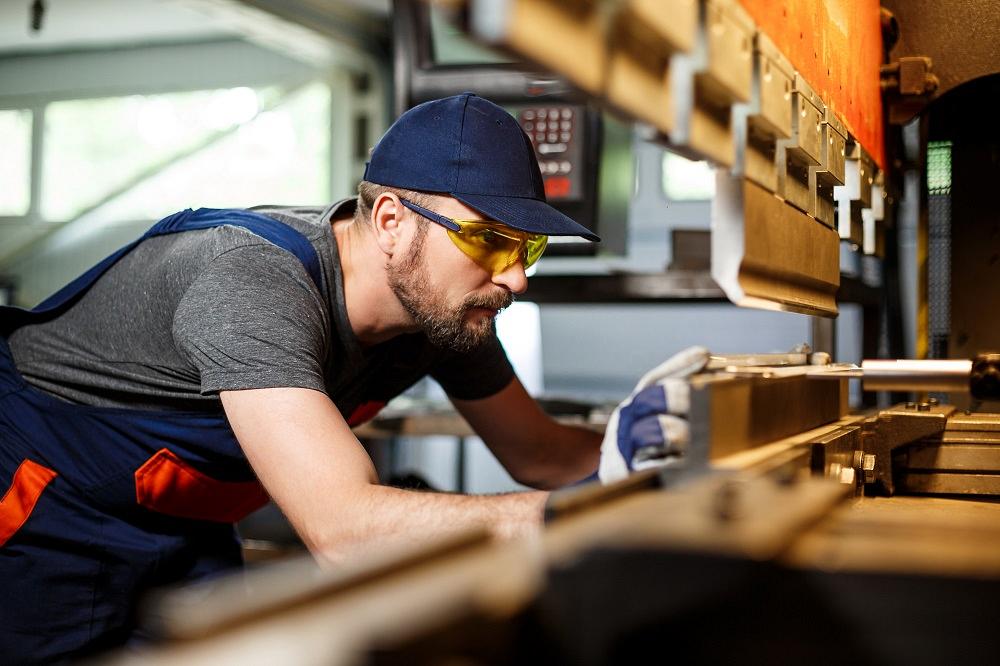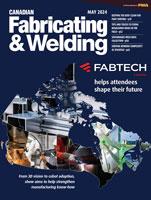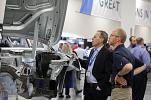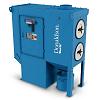Editor
- FMA
- The Fabricator
- FABTECH
- Canadian Metalworking
Even with automation push, fundamentals still valuable
On an unique bike race and the call to understand the basics of any craft
- By Rob Colman
- September 27, 2023
In late September, the L’Eroica bike race took place in Tuscany. This annual, non-competitive cycling event was started in 1997 in Gaiole in Chianti by Giancarlo Brocci as a way to celebrate cycling’s glory days. The theme is vintage cycling, with participants using vintage bikes (built before and including 1987), accessories and clothing, such as merino wool jerseys. The route often follows unpaved gravel roads. Each bike must be steel framed; have gear levers mounted on the down tube of the frame; have external wires; and pedals with toe straps.
The ethos of the race, according to its website, is facing “difficulties with tenacity and patience” to appreciate “times of struggle as a challenge gratefully accepted.” It is meant to recall the “heroic cycling of Coppi and Bartali” to recover the “core values of a great sport still able to fulfill the needs of today through the experience of fatigue in all its raw grandeur.”
The race has been so popular among cyclists that there are now 14 Eroica races worldwide.
Not only are the conditions a challenge, but there are no cars following participants to perform bike maintenance should something go wrong. The participants are out there alone, with only their wits and whatever they might carry with them to address struggles along the way.
I imagine a lot of shop owners wished there was a manufacturing Eroica to engage young recruits in the trades. No one wants to return to the days before CNC press brakes or robotic welding applications, but measuring fundamentals and a physical understanding of material properties are things that those who have been in the trades for 30 or 40 years understand and value. That kind of tribal knowledge inevitably helps in problem-solving. It’s also a reminder that the trades, at root, are a craft. There’s a joy in learning to form and create that the abstraction of computers and the never-ending push to deliver more parts faster can dampen.
There are still ways to fill some of those knowledge soft spots, of course. The Fabricators and Manufacturers Association’s (FMA) Precision Press Brake Certificate course is one way that many companies across North America have managed to increase staff press brake knowledge. The course usually is an intensive, two-day seminar to teach operators, engineers, and associated personnel the theory and math fundamentals behind the machine to uncover the secrets of working with press brakes. It teaches the principles behind quality sheet metal bending through interactive instruction and sample work problems throughout the course.
Unlike the Eroica, such a course doesn’t include views of the Tuscan hills or any number of wineries, but it’s one way for an employee to get closer to the fundamentals behind the press of a foot pedal or button.
subscribe now


Keep up to date with the latest news, events, and technology for all things metal from our pair of monthly magazines written specifically for Canadian manufacturers!
Start Your Free SubscriptionAbout the Author

Rob Colman
1154 Warden Avenue
Toronto, M1R 0A1 Canada
905-235-0471
Robert Colman has worked as a writer and editor for more than 25 years, covering the needs of a variety of trades. He has been dedicated to the metalworking industry for the past 13 years, serving as editor for Metalworking Production & Purchasing (MP&P) and, since January 2016, the editor of Canadian Fabricating & Welding. He graduated with a B.A. degree from McGill University and a Master’s degree from UBC.
- Industry Events
Automate 2024
- May 6 - 9, 2024
- Chicago, IL
ANCA Open House
- May 7 - 8, 2024
- Wixom, MI
17th annual Joint Open House
- May 8 - 9, 2024
- Oakville and Mississauga, ON Canada
MME Saskatoon
- May 28, 2024
- Saskatoon, SK Canada
CME's Health & Safety Symposium for Manufacturers
- May 29, 2024
- Mississauga, ON Canada





















